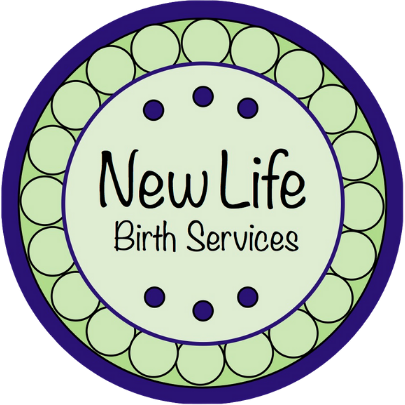What You Can Do about the Inequitable Care for Black Birthing People in America
Hi NLBS Community, I’m Cheyenne Clay. As a Black woman and mother, I have experienced racial disparities firsthand. Growing up, I never knew that my race would so greatly impact the treatment and care that I would receive as a person - especially as a birthing person. It was not until I gave birth to my first child, that I came to the realization that my care and treatment were unlike the care other mothers experienced. I was denied pain medication in labor for fear that I would “max out my dosage too soon”. During my postpartum period, I was brushed off several times before I was readmitted for severe postpartum complications. Had I not fought for myself, I might be part of the outrageous disparity that affects the Black birthing community. I became a birth worker because I understand the disparities that affect the Black birthing community. I want to educate and support birthing people (especially Black birthing people). I want families to feel prepared and empowered during their pregnancy, labor, and postpartum journey.
As a Black woman, a mother, and a birth worker, I find it crucial that the proper education, funding, and resources be available to those greatly affected by these disparities. I want to help birthing people become empowered in their care and have the ability to trust their bodies. I want to help them feel informed, heard, and supported without worrying about judgment or being dismissed.
After supporting me in processing my experience and deciding to collaborate with me on this piece, Jaelan Mincey researched the new data around racial disparities in birth. She writes:
You may know that Black birthing people are “3 times more likely to die” from pregnancy, birth, and postpartum complications than white birthing people. This has been studied in-depth and according to the CDC, multiple factors contribute to pregnancy-related mortality and racial/ethnic disparities.
We know that around 60% of pregnancy-related mortalities are preventable. Thirteen state review committees have studied the data and have found no significant differences in preventability by race/ethnicity. We’ve known that this is a problem for a long time and in recent years, knowledge of this disparity has gone mainstream bringing forth conversations and legislation designed to close the gap (see here, here, and here).
In 2020, when the COVID-19 pandemic began, there were conversations about how health disparities may increase among underserved communities. We have the data now that proves that pregnancy-related mortalities have also been impacted, and Black and Indigenous birthers are the most at risk.
Together, as pregnancy and postpartum support providers, we have committed ourselves to learning about, advocating for, and supporting matters which are intended to close the racial disparity gap in maternal health. Below are resources that we feel might be of interest to you. Not one single organization or piece of legislation will solve this problem, but our hope is to bring resources to our community’s attention and to amplify the voices of those doing the work and those impacted so that collectively we can make a difference.
RESOURCES
Legislative:
Please read about the following legislation and if you’re in support of them, write, call, and/or S.O.S. your elected representatives to get these bills PASSED!
H.R. 959 Black Maternal Health Momnibus Act of 2021 This bill aims to end preventable maternal mortality and severe maternal morbidity in the United States and close disparities in maternal health outcomes, and for other purposes.
H.R. 2751 Mamas First Act This bill requires state Medicaid programs to cover doula and midwife services, including prenatal, delivery, and postpartum services.
H.R. 7585 Health Equity and Accountability Act of 2022 This bill aims to reduce racial and ethnic health inequities, address the maternal mortality crisis, strengthen health data collection and research, expand access to mental health care, target gun violence, improve language access in health care, and diversify our health care workforce.
H.R. 1065 The Pregnant Workers Fairness Act This bill will help protect and make necessary accommodations for pregnant employees.
H.R.5592 - PUMP for Nursing Mothers Act This bill extends protections for a working mother who expresses breast milk for her nursing child to cover salaried employees and other types of workers not covered under existing law. The bill requires employers to pay a nursing mother who is paid on an hourly basis for time spent to express breast milk if she is also working.
Organizations:
National Birth Equity Collaborative creates transnational solutions that optimize Black maternal, infant, sexual, and reproductive wellbeing.
New Mexico Birth Equity Collaborative Black Health New Mexico is the only Black led nonprofit in the state of New Mexico working to address maternal health and reproductive justice.
Black Mamas Matter Alliance is a national network of Black women-led and Black-led, birth and reproductive justice organizations and multi-disciplinary professionals, working across the full-spectrum of maternal and reproductive health.
The Birth Sanctuary is dedicated to improving the lives, health, and maternal-fetal outcomes of those giving birth in Alabama.
Moms Rising is an organization for cultural and legislative change around various pressing issues, including maternal justice.
Shades of Blue Project is dedicated to helping women before, during and after childbirth with community resources, mental health advocacy, treatment and support.
The Blavatnik Family Women’s Health Research Institute serves to optimize quality of care for women across the life span and to narrow gaps in treatment and outcomes in underserved populations through targeted scientific research.

